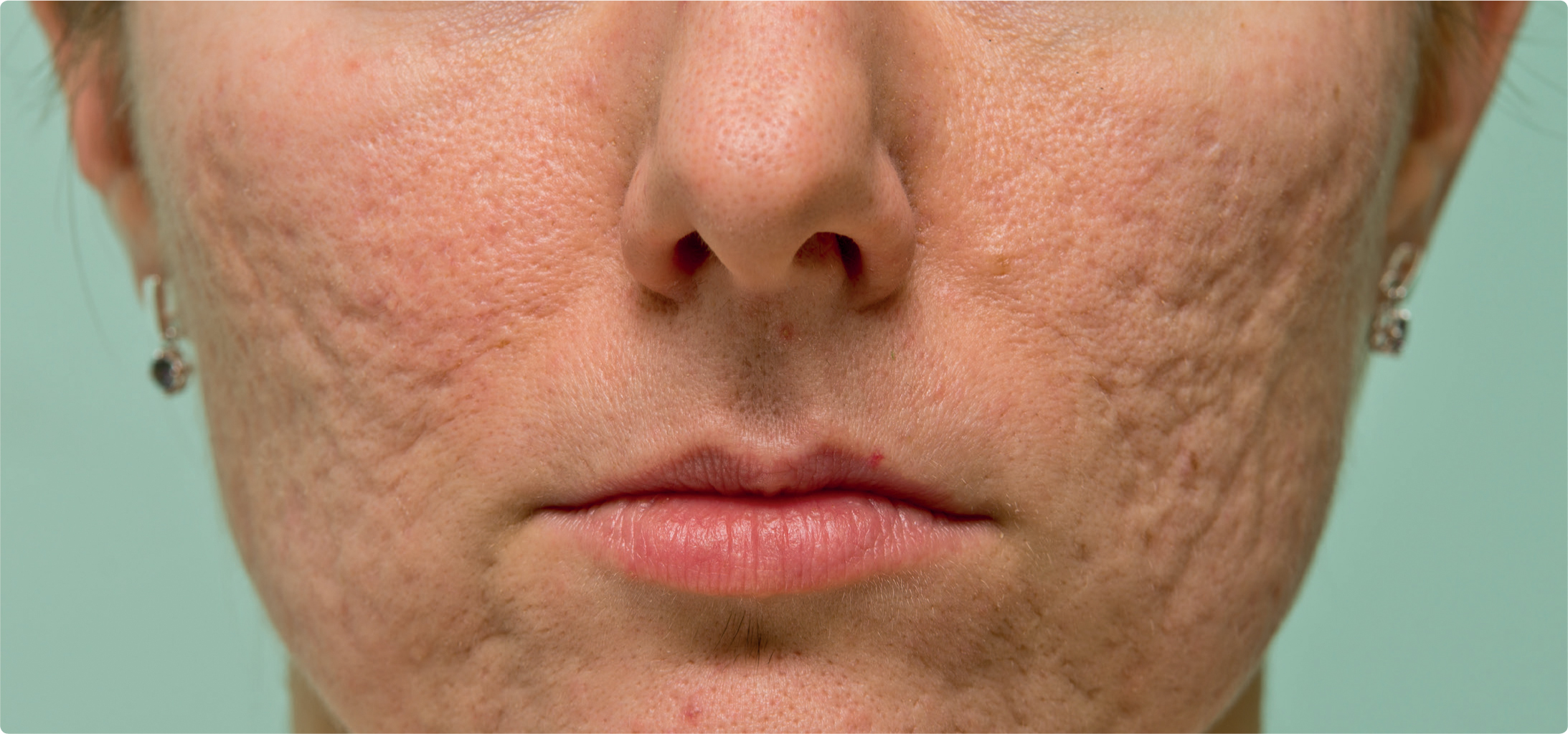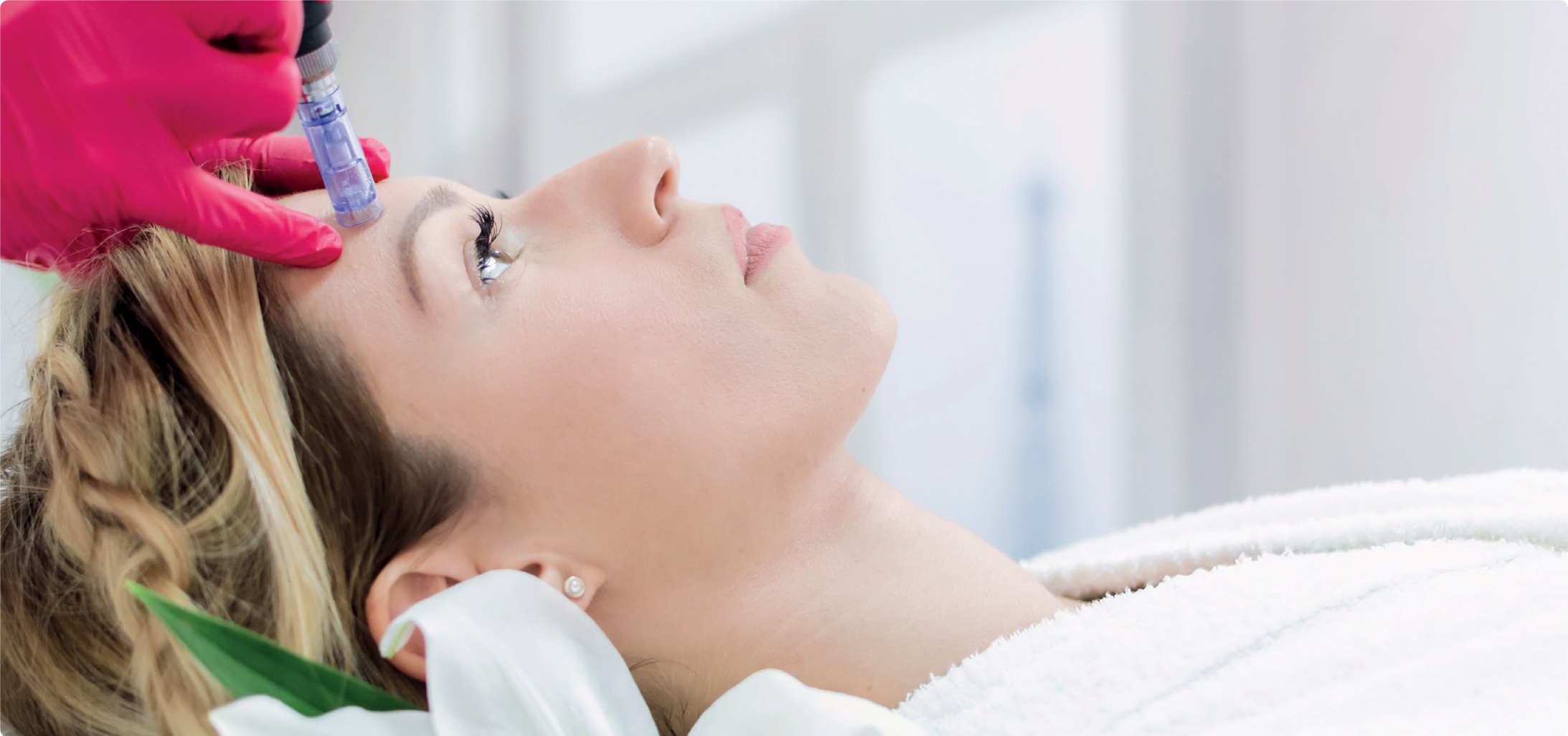
Although many articles point to the beginning of the 20th century as the advent of microneedling, it could be argued that its use stretches back even further than this. We could point to the first uses of acupuncture by the Chinese in 100 BC. Of course, acupuncture is considerably different from microneedling, but the end goal of promoting the body's natural, self-healing process, is the same.
If we are looking for something more similar to modern microneedling, we have to fast-forward to 1905, when German dermatologist Dr Ernst Kromayer used a number of motor-powered dental burs, which varied in size, to treat scarring, hyperpigmentation, and other skin ailments. Despite the innovations by Kromayer, further advancements wouldn't be made until late in the century (MDPen, 2019).
The first of these was by Dr Andre Camirand in 1996, through the practice of medical tattooing. Camirand had been trying to treat and conceal scarring on his patients by tattooing pigment into their skin. However, he began to notice that the tattooed pigment was dissolving and being replaced by actual melanin. What's more, the scarring itself was showing marked improvement in texture, colour and overall appearance. However, the most remarkable thing about this development is that it didn't appear to be the pigment causing these improvements, but the needles used to apply the pigment.
Further research and experiments led to the idea that puncturing scars with a tattoo gun, without pigment, could break down some of the scar tissue, as well as other material that had built up inside it. Camirand's theory proved correct and, after multiple sessions, all of his patients saw significant benefits from his pioneering treatment.
Shortly afterwards, in the same year, plastic surgeon Dr Desmond Fernandes developed his own technique for purposely penetrating the skin, using a small needle stamp. He used this device to stimulate collagen production in the skin, finding an effective way to treat scarring, wrinkles, and other signs of ageing. He named his method (minimally-invasive) percutaneous collagen induction (PCI).
Fernandes then went on to develop the first widely-used microneedling device, the original Dermaroller, and is credited, in a sense, as being the father of modern microneedling (Garcia, 2019).
Since then, a variety of microneedling devices have been developed, with significant increases in effectiveness, as well as decreases in cost. This potent combination of better results and lower treatment prices have seen microneedling surge in popularity, with little to no signs of slowing down any time soon. In fact, the technology involved in creating the devices has evolved to the point that many are designed for home use, with the user being able to apply the technique themselves.
How microneedling works
The main principle behind microneedling is the precise penetration of the skin to cause self-healing. Needles of different lengths are used to repeatedly penetrate the skin at differing depths, depending on the skin condition that is being treated. However, the typical size is 0.5-1.5 mm in length, with a diameter of 0.1 mm.
These needles, pre-sterilized by gamma irradiation, are used to pierce the stratum corneum to create holes, or microconduits, while causing minimal damage to the epidermis. This causes the growth factors, such as TGF-alpha, TGF-beta, and platelet-derived growth factor (PDGF), to which stimulate the production of new collagen (neocollagenesis) and elastin cells in the dermis. This, upon healing, makes the skin firmer, smoother, and gives it a more youthful appearance.
This process leads to the development of new capillaries, or neovascularisation, in the treated area. Not only does this lead to faster recuperation (and less down-time), but it also results in a reduction in scarring, and enhanced blood flow and, consequently, nutrient transportation, thereafter.
In addition, though the damage to the epidermis is minimal, it still allows for the enhanced absorption of topical treatments, such as retinol, tretinoin and vitamin C, by the thick stratum corneum, through a process known as microneedling trans-dermal delivery (Fernandes, 2005; Doddaballapur, 2009; Iriarte et al, 2017).
Aesthetic uses for microneedling
One of the main reasons microneedling has become increasingly popular is that it is useful for a variety of aesthetic treatments. This includes:
However, as well as its versatility, its widespread use is also down to its ease, low cost, (relative) lack of pain and invasiveness, and lack of downtime compared with other popular cosmetic procedures (Iriarte et al, 2017; Galan, 2019).
Available microneedling devices
As mentioned earlier, microneedling devices have developed to the point they can be used for self-application. This means that devices on the market generally fall into two categories: those designed for use by aesthetic practitioners and those suitable for home use. Devices with needles longer than 0.5 mm are designed for professional use, as they have the ability to deeper penetrate the layers of the skin. Devices deemed suitable for self-application have needles under 0.5 mm long.
Microneedling's rapid, and still growing, popularity means there is a wide variety of microneedling devices, including the Dermapen, Dermaroller, Dermastamp, Dr Pen, Skin Pen, and many others – usually containing the term ‘pen’ or ‘roller’ in line with the terminology associated with the treatment (Singh and Yadav, 2016; Skin Pen, 2019).
Considerations for aesthetic practitioners
There are a number of considerations that professional aesthetic practitioners need to be aware of regarding microneedling. These either fall into the category of their own professional conduct or effectively guiding clients through the process.
Professional conduct
The professional conduct aspect mainly concerns hygiene and cleanliness. This is something that goes without saying but bears repeating due to the nature of the treatment, with the patient's skin being so exposed and compromised. For a start, as mentioned above, the needles should be pre-sterilised and single use only.
Additionally, it is best to use a cordless device for complete manoeuvrability, although a consistent power supply throughout the procedure is vital too.
Also, and most importantly, microneedling is not recommended for pregnant women. This is due to the fact that the healing process draws nutrients into the treated area, depleting the pool usually reserved for the developing foetus.
Patient considerations
When it comes to things to consider when taking clients through the process, as with all aesthetic procedures, these too fall into three categories: managing their expectations, informing them of the risks, and advising them on safe and effective aftercare.

The main aspect of managing the patient's expectations is letting them know that the best results of the treatment take time. Although they will enjoy some initial results within 3–4 days, when most of the inflammation has subsided, they will see the best results after 60–90 days. This is because it takes time for the collagen and elastin cells to be stimulated and cause the skin to look replenished.
It is also important to let the patient know that optimal results come with repeated treatments. This enables the skin to become accustomed to the procedure and allows the practitioner to use longer needles, penetrating the skin further and inducing deeper remodelling of the dermis. It is for this reason that many aesthetic practitioners offer packages comprised of multiple treatments, with sole treatments reserved for clients who have already undergone several of them before.
Risks
Although microneedling carries few risks, like any cosmetic procedure, they still exist, so it is imperative to inform the patient of these risks during the consulatation. These risks include bruising, bleeding, scarring, pigmentation problems, and infection—particularly as the skin is vulnerable after the procedure.
Another set of risks the aesthetic practitioner may need to educate their clients on are those that come with using microneedling devices at home. This issue may be raised in a consultation, as an enquiry from an existing client who has never had the procedure, or, conversely, from one who has undergone microneedling treatment several times and feels comfortable doing it alone.

The first thing to make clear is that the devices available for home use are different from those used by professionals. For a start, they are not able to penetrate as deeply as those designed for medical use, which makes them less effective. There is also the fact that home-based devices are not as strictly regulated as the ones used by aesthetic practitioners, so there is no guarantee of their quality or hygiene levels.
The technique for using a microneedling device on oneself can be tricky and is best done after being shown. However, even then, the risk of doing it incorrectly and causing damage to the skin should still be taken into consideration.
Also, there are additional risks from infection, with the client naturally not being as aware or vigilant as a professional practitioner. This could come from cross-contamination of the area where they keep their microneedling device, or from applying incorrect topical treatments afterwards.
Finally, we come to the prescription of effective aftercare. This includes avoiding sun exposure, wearing sunscreen, not wearing makeup, and refraining from exercise for a few days after the treatment (Cassata, 2016; Cherney, 2018; Canadian Board of Aesthetic Medicine, 2019; DermaSpa, 2019; Galan, 2019).
Conclusion
Microneedling has come a long way since it was first experimented with, and it is reasonable to consider that its applications in aesthetic medicine will continue to expand. It is also more accepted and known of as a regular skin procedure for our clients in our clinics. It is a great stand alone procedure for skin health and rejuvenation and also a great accompanying treatment to offer alongside injectable procedures. However, every procedure has risks, and it is imperative that the aesthetic practitioner makes the patient fully aware of these risks before any course of treatment commences.


